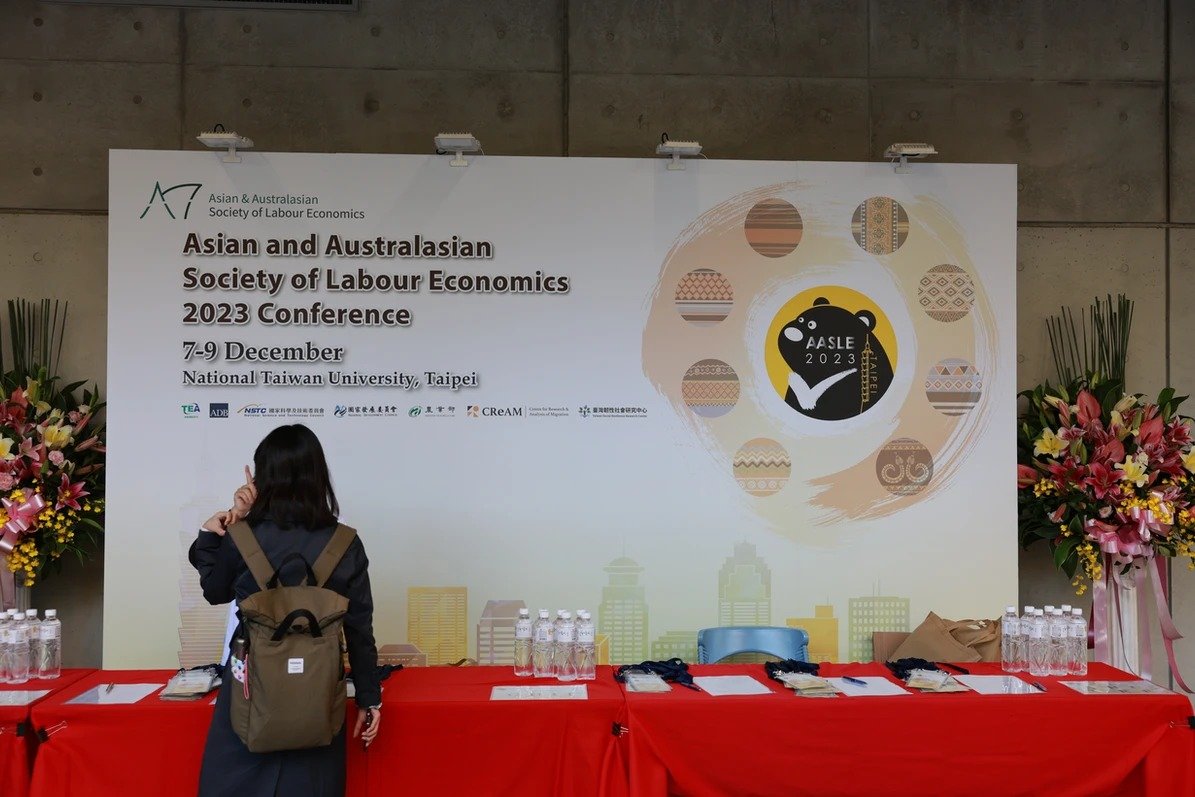At the Asian and Australasian Society of Labour Economics (AASLE) Conference in Taipei, Taiwan, held on 8 December 2023, new research presented by Dr Lynette Washington shed light on the employment values of workers displaced from Australia’s automotive sector. Her paper, titled “Labour Market Preference of Retrenched Australian Auto Industry Workers for Job Quality and Meaningful Work,” offered a data-driven exploration of how redundant workers evaluate job opportunities not only by pay but by the quality and meaningfulness of the work environment.
The study, co-authored by Associate Professor Akshay Vij, Associate Professor Sally Weller, Mr. Jacob Irving, and Associate Professor Ilke Onur, used stated preference (SP) experiments to uncover the job-related choices of 309 former automotive workers. The project stands out for its nuanced approach to understanding labour market behavior following large-scale industrial transition—a timely topic as economies worldwide face technological disruption and decarbonisation.
Understanding the Post-Closure Workforce Landscape
The collapse of Australia’s passenger vehicle manufacturing industry left thousands of skilled workers seeking new employment opportunities in industries that often differed significantly from their previous experience. While policymakers have tended to emphasize redeployment and skill adaptation, the emotional and qualitative dimensions of work have received less attention. Washington’s study sought to fill this gap by asking: What kind of work environments do displaced workers desire, and what trade-offs are they willing to make between job quality and pay?
Using SP experiments, the researchers simulated various job scenarios with different characteristics, enabling them to measure how participants valued attributes such as autonomy, job security, employer reputation, and training needs. The findings highlight the complexities of post-retrenchment decision-making, revealing how former auto workers weigh personal values, financial necessity, and perceptions of employer fairness.
Autonomy and Employer Reputation Take Priority
One of the study’s most significant findings was the strong preference for autonomy and employer reputation over other factors. Workers indicated that the ability to exercise independence and decision-making in their roles substantially increased job attractiveness. Quantitatively, this preference translated into a compensating wage differential of about 5 AUD per hour. In other words, workers were willing to forgo higher pay elsewhere if it meant greater control over how they performed their work.
Similarly, employer reputation—particularly in relation to good workplace policies, fair treatment, and social responsibility—ranked nearly as high. The research suggests that retrenched workers are acutely aware of employer behavior and seek reassurance that any new workplace aligns with their values and offers a respectful environment. This finding reflects a broader global trend in which jobseekers increasingly prioritize organizational ethics and well-being policies over purely financial compensation.
Balancing Security and Skill Utilization
While autonomy and employer reputation came out on top, job security and skill utilization were also valued, albeit to a lesser extent. The analysis found that greater job security was associated with a wage premium of between 1 AUD and 3 AUD per hour. Interestingly, workers also expressed lower enthusiasm for positions that required extensive retraining, preferring roles where they could apply their existing skills effectively.
This pattern points to an ongoing tension in post-industrial labour markets: workers crave stability and recognition of their experience, even as economies push them toward new industries with different skill demands. The results underline that successful labour market transitions must integrate both economic and human considerations—ensuring not only employment continuity but also a sense of purpose and respect for worker expertise.
Policy Implications for Labour Market Reform
The study’s authors suggest a crucial shift in how policymakers design employment programs and industrial adjustment strategies. Rather than focusing exclusively on job quantity, policies should address job quality by promoting employer accountability, fairness, and opportunities for worker autonomy. A policy environment that monitors and rewards positive workplace practices could enhance re-employment outcomes and general wellbeing for displaced workers.
For example, labour market frameworks could emphasize strengthened employer accreditation systems, workplace audits, or incentives tied to ethical employment standards. By linking government support or tax benefits to verified good employment practices, policymakers could encourage businesses to attract workers not just through wages, but through the overall quality of their workplaces.
Associate researcher Akshay Vij noted in discussions following the presentation that the results align with broader international findings showing that job satisfaction, autonomy, and trust in employers are major determinants of long-term employment retention. Similarly, co-author Sally Weller emphasized that quality employment opportunities not only aid worker recovery but also foster stronger, more resilient regional labour markets.
A Broader Lens on Meaningful Work
Dr Washington’s presentation was part of a growing academic and policy conversation surrounding “meaningful work,” a concept that bridges economics, psychology, and social equity. Her research contributes empirical evidence to a topic that has traditionally been examined from a theoretical perspective. The willingness of retrenched automotive workers to value autonomy and meaningful employment attributes so highly underscores the importance of intrinsic motivations in job choice, particularly after disruptive career events.
Furthermore, the study highlights that the quest for meaningful employment does not belong solely to white-collar professionals or younger generations—it resonates strongly among experienced industrial workers as well. As industries worldwide transition toward new technologies and environmental strategies, understanding these worker preferences will be key to ensuring that change is not only managed efficiently but also equitably.
Labour Economics in Transition
The AASLE conference in Taipei served as an important platform for linking Asia-Pacific research on workforce transformation. By sharing Australia’s experience with large-scale industry retrenchment, the FWFC-affiliated researchers provided valuable perspectives applicable to other nations undergoing rapid industrial change. Taiwan’s own evolving manufacturing and technology sectors provided a fitting backdrop for the discussion, showing that lessons from Australia’s automotive closures have regional relevance.
The study presented by Dr Washington redefines how we view labour adjustment. Rather than treating job seekers as passive participants in a market of wages and vacancies, it positions them as active individuals seeking dignity, respect, and control in their working lives. As economies continue to evolve, this re-centering on job quality and meaningful work offers a compelling foundation for a fairer, more sustainable labour future.

